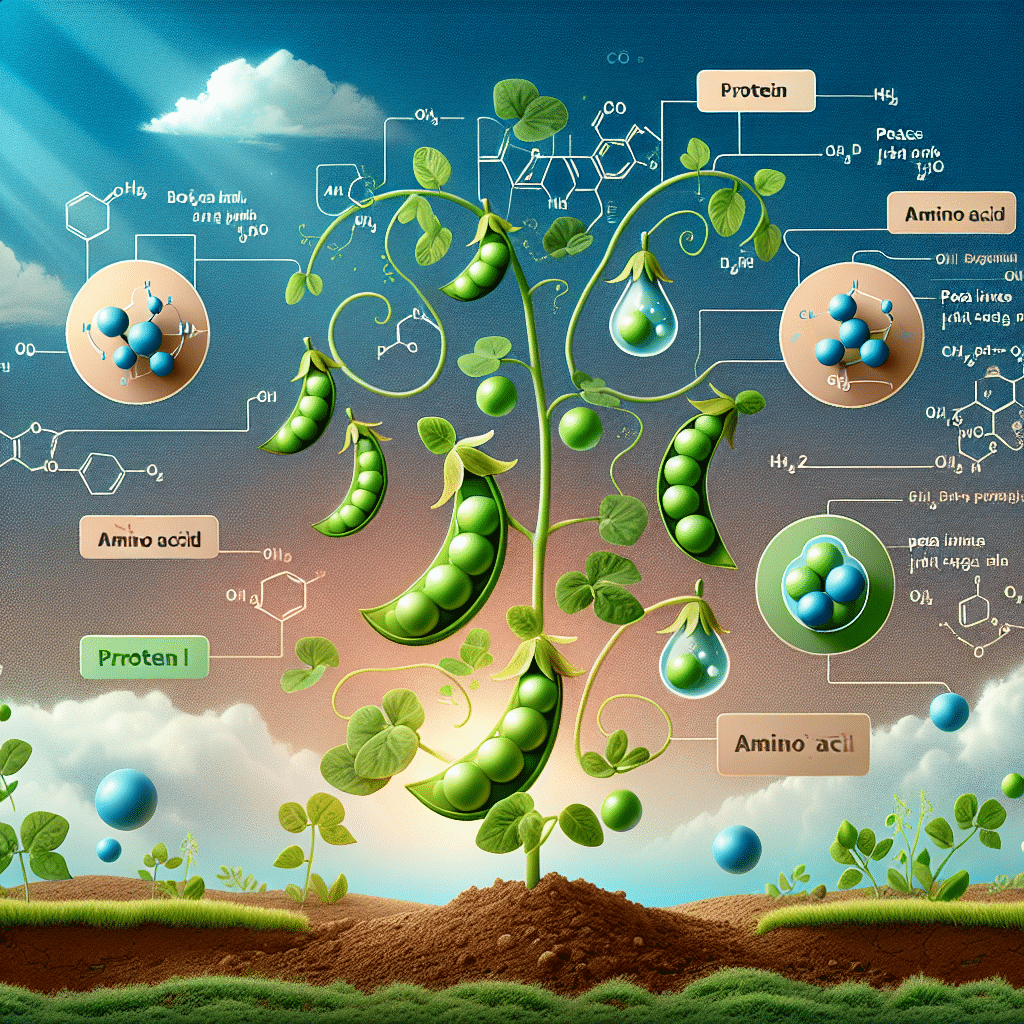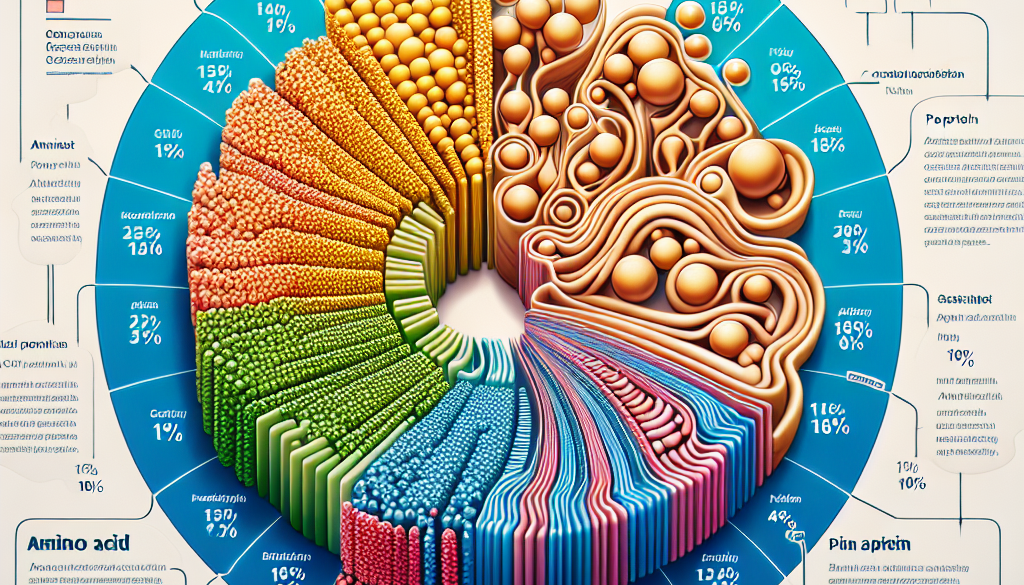Pea Protein Amino Acid Profile: A Closer Look
-
Table of Contents
Pea Protein Amino Acid Profile: A Closer Look

Pea protein has gained significant popularity in recent years as a plant-based alternative to animal-based protein sources. With its impressive amino acid profile and numerous health benefits, pea protein has become a staple in the diets of athletes, vegans, and health-conscious individuals. In this article, we will take a closer look at the amino acid profile of pea protein and explore why it is considered a valuable source of protein.
What is Pea Protein?
Pea protein is derived from yellow split peas, a type of legume that is rich in protein. It is a complete protein, meaning it contains all nine essential amino acids that the body cannot produce on its own and must obtain from the diet. Pea protein is also hypoallergenic, making it an excellent choice for individuals with food sensitivities or allergies.
Amino Acids in Pea Protein
Pea protein is particularly rich in branched-chain amino acids (BCAAs), which play a crucial role in muscle growth and repair. BCAAs, including leucine, isoleucine, and valine, are essential for protein synthesis and are highly sought after by athletes and bodybuilders.
Here is a breakdown of the amino acid profile of pea protein:
- Alanine
- Arginine
- Aspartic acid
- Cysteine
- Glutamic acid
- Glycine
- Histidine
- Isoleucine
- Leucine
- Lysine
- Methionine
- Phenylalanine
- Proline
- Serine
- Threonine
- Tryptophan
- Tyrosine
- Valine
These amino acids are essential for various bodily functions, including muscle repair, immune system support, and hormone production. The presence of all essential amino acids in pea protein makes it a valuable source of protein for individuals following a plant-based diet.
Benefits of Pea Protein
Pea protein offers several benefits that make it an attractive choice for individuals looking to increase their protein intake:
1. Muscle Growth and Recovery
As mentioned earlier, pea protein is rich in BCAAs, which are essential for muscle growth and repair. Studies have shown that consuming pea protein after resistance training can promote muscle protein synthesis and enhance muscle recovery.
2. Weight Management
Pea protein is low in calories and fat, making it an excellent option for individuals looking to manage their weight. It provides a feeling of fullness, which can help reduce calorie intake and support weight loss goals.
3. Heart Health
Pea protein is cholesterol-free and low in saturated fat, making it heart-healthy. Studies have shown that pea protein can help lower blood pressure and reduce the risk of cardiovascular diseases.
4. Digestive Health
Pea protein is easily digestible and does not cause bloating or digestive discomfort, unlike some other protein sources. It is also rich in fiber, which promotes healthy digestion and supports gut health.
How to Incorporate Pea Protein into Your Diet
Pea protein is available in various forms, including powders, bars, and shakes. It can be easily incorporated into your diet in the following ways:
- Add pea protein powder to smoothies or shakes for a quick and convenient protein boost.
- Use pea protein powder as a substitute for flour in baking recipes to increase the protein content of your favorite treats.
- Enjoy pea protein bars as a healthy snack option on the go.
- Include pea protein in your post-workout routine to support muscle recovery and growth.
Conclusion
Pea protein is a valuable source of protein with an impressive amino acid profile. Its numerous health benefits, including muscle growth and recovery, weight management, heart health, and digestive health, make it a popular choice among athletes, vegans, and health-conscious individuals. By incorporating pea protein into your diet, you can enjoy the benefits of this plant-based protein source and support your overall health and wellness.
About ETprotein
ETprotein, a reputable protein Chinese factory manufacturer and supplier, is renowned for producing, stocking, exporting, and delivering the highest quality organic bulk vegan protein and plant proteins. They include Organic rice protein, clear rice protein, pea protein, clear pea protein, pumpkin seed protein, sunflower seed protein, mung bean protein, etc. Our offerings, characterized by a neutral taste, non-GMO, allergen-free attributes, cater to a diverse range of industries. We serve nutraceutical, pharmaceutical, cosmeceutical, veterinary, as well as food and beverage finished product distributors, traders, and manufacturers across Europe, USA, Canada, Australia, Thailand, Japan, Korea, Brazil, and Chile, among others.
Our specialization includes exporting and delivering tailor-made protein powder and finished nutritional supplements. Our extensive product range covers sectors like Food and Beverage, Sports Nutrition, Weight Management, Dietary Supplements, Health and Wellness Products, and Infant Formula, ensuring comprehensive solutions to meet all your protein needs.
As a trusted company by leading global food and beverage brands and Fortune 500 companies, ETprotein reinforces China’s reputation in the global arena. For more information or to sample our products, please contact us and email sales(at)ETprotein.com today.














